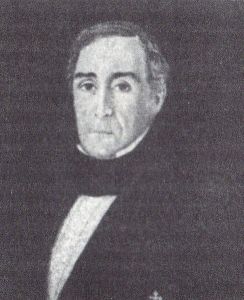Diplomatic
 He was born in Sanremo on 2 January 1794 to Giovanni Battista and Maria Caterina Sartorio, sister of that captain Giacomo Sartorio who in 1821 brought Maria Teresa of Tuscany and her son, the future Vittorio Emanuele II, to safety on his ship after a stormy crossing from Nice to Livorno.
He was born in Sanremo on 2 January 1794 to Giovanni Battista and Maria Caterina Sartorio, sister of that captain Giacomo Sartorio who in 1821 brought Maria Teresa of Tuscany and her son, the future Vittorio Emanuele II, to safety on his ship after a stormy crossing from Nice to Livorno.
After completing his studies, he went to Turin to pursue a diplomatic career and at the age of 25 he was appointed vice-consul in Taganrog on the Sea of Azov, a very important city from a commercial point of view as the grains of eastern Ukraine departed from that port. After some time he was transferred as consul to Beirut and later held the same position in Cairo in Egypt.
In February 1830 he was appointed Consul General in Lisbon, arriving in the Portuguese capital just when the Piedmontese government had recognized the government of D. Miguel as opposed to the Emperor of Brazil D. Pedro, who was plotting to try to put his daughter Maria II da Gloria back on the throne.
During his mandate he had to intervene personally at the Lusitanian Foreign Ministry to protect the numerous Sardinian subjects from the abuses to which they had been subjected for some time by the "miguelists". In fact, the local authorities had summoned many Sardinian citizens to pay them an extraordinary tax which had become necessary due to the difficult economic conditions Portugal was experiencing in those years, and on such occasions
Bobone had to intervene with the Portuguese government to enforce the privileges that the Lusitanian laws and trade agreements granted to Sardinian citizens.
However, he did not hide a certain sympathy for D. Miguel's government, so much so that at the end of the civil war, when he was expelled from the throne, he was accused by the Liberals of having favoured the defeated sovereign. After marrying a rich Portuguese woman, D. Ana Emilia Vasques, in 1837 he refused the position he had been offered at the consulate in Barcelona, preferring to stay in Lisbon to look after his interests, thus temporarily abandoning his diplomatic career.
Between 1844 and 1856 he represented Switzerland in Portugal as Consul of the Swiss Confederation in Lisbon.
During his long diplomatic career, he forged sincere ties of friendship with many personalities among whom Urbano Rattazzi and Luigi Cibrario are particularly remembered. After having carried out the duties of Sardinian businessman in Portugal, on 15 May 1850 he was reconfirmed by the Savoy government as representative of the Kingdom of Sardinia in Lisbon. During his term of office he obtained numerous commendations and praise
of all the foreign ministers who succeeded one another in Turin, including Cavour himself, finally reaching the rank of plenipotentiary minister when he retired in 1860.
His fame, however, remains linked to the help he gave to King Charles Albert during his exile on Portuguese soil in the city of Porto. On hearing the news of the arrival of the Savoy sovereign in Portugal on 19 April 1849, he had in fact made himself available to him, immediately sending the king a letter of credit of 800 reis, corresponding to 50,000 lire, and immediately afterwards going to Oporto to visit the sovereign who had just arrived in the land of exile.
Thanks to the active interest of the Matuan diplomat, Carlo Alberto had been able to take up residence since the beginning of May in the renovated villa of Entre-Quintas, where Bobone was the only one present when the king's personal chaplain, Father Antonio Peixoto Salgado, celebrated the first Mass in the new residence in front of the Savoy sovereign, who had meanwhile assumed the title of Count of Barge.
Bobone was also one of the few who were admitted to the bedside of the dying Charles Albert and also had the good fortune to witness the death of the sovereign, whose death, embalming and provisional deposition of the coffin in the cathedral of Oporto.
After having held the position of Piedmontese Consul General in the Portuguese capital for several years, he died in Lisbon on 14 January 1865.
For the services he rendered to the State and for the particular attachment he had shown to his parent, Vittorio Emanuele II awarded him the title of Count in 1852.
Among the other titles with which he was decorated are those of Knight of the Pontifical Order of St. Gregory the Great and the Order of the Conception of Portugal and Commander of the Order of Saints Maurice and Lazarus.
(source: Vite di Sanremesi illustri di A.Gandolfo)




